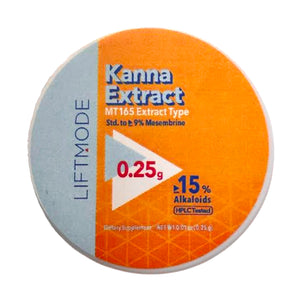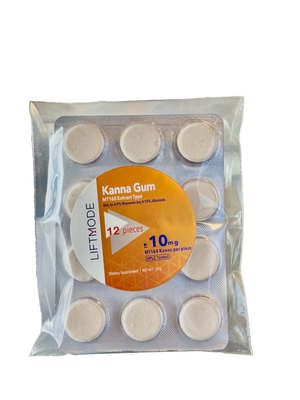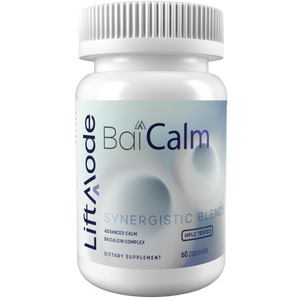Quercetin is a bioflavonoid compound found in many plants – especially in fruits and vegetables. It can be found in high quantities in red wine, onions, green tea, apples, berries, and Gingko Biloba. In the past, people used Quercetin as a way to prevent illness, to help with asthma and
regulate the immune system. Today,
Quercetin is sold as a dietary supplement for supporting a healthy body.
Quercetin side effects are uncommon as this is considered to be one of the safest supplements you can take. However, Quercetin has a number of interactions, especially with certain medications like antibiotics and blood-thinning medicine.
[caption id=""attachment_2333"" align=""alignright"" width=""848""]
![]()
Quercetin is known to boost immune health and work as a powerful anti-inflammatory[/caption]
Top 3 Quercetin benefits
For more information about the benefits of Quercetin, check out our great blog post about
the top Quercetin benefits! This article is primarily focussed on the Quercetin side effects.
-
Strengthens immune system and promotes well-being
Two of the greatest Quercetin benefits are its ability to support a healthy immune system and to work as a powerful anti-inflammatory supplement. Like many other plant flavonols, Quercetin has powerful anti-inflammatory effects. The anti-inflammatory effects that have been shown in cell cultures of both human and animal cells.
[1]
Not only this, but Quercetin has been shown to have protective effects on white blood cells in the immune system and on cells in the gastrointestinal tract.
[2]
-
Helps promote a healthy circulatory system
[caption id=""attachment_1217"" align=""alignright"" width=""300""]
![]()
Quercetin, a top health supplement with anti-inflammatory properties[/caption]
Quercetin has powerful beneficial effects on your circulatory system. Research has indicated that it can improve the recovery speed of the heart and help to reduce the effects of stress on the heart.
[3]
More importantly, Quercetin possesses powerful antioxidant effects. This means that it helps to destroy reactive chemical species called ‘free-radicals’ which cause damage to your body and can have negative impacts on the health of your circulatory system.
[4]
Finally, Quercetin has the ability to promote a healthy blood lipid profile. What this means, is that is can help your body to destroy excess cholesterol, especially LDL-Cholesterol which is toxic to your body.
[5]
-
Helps to reduce stress and boosts energy levels
[caption id=""attachment_2335"" align=""alignright"" width=""300""]
![]()
Quercetin may help boost energy levels and improve athletic performance[/caption]
Growing research is pointing to Quercetin’s ability to help reduce stress and to boost energy levels. Animal studies have indicated that Quercetin may have strong stress-reducing benefits.
[6]
Other studies have shown that Quercetin has the potential to improve energy levels and boost athletic performance when taken over longer periods of time.
[7]
How to take Quercetin supplements?
The recommended Quercetin serving size is around 800-2000mg daily for a strong (95+% purity) supplement. This dose can be separated into two or three servings throughout the day.
Most studies on Quercetin have incorporated a standard dosage of around 12.5 to 25mg per kg bodyweight, per day. This would equate to around 900 – 1800mg per day for a 75kg person.
[8]
In a study published in 2009 in the British Journal of Nutrition, researchers found that 6 weeks of daily dosing with 150mg of Quercetin had no negative impacts on liver or kidney health, and that participant’s blood and electrolyte levels remained healthy too, indicating that regular, long-term Quercetin supplementation is safe.
[9]
[caption id=""attachment_2334"" align=""alignright"" width=""862""]
![]()
Quercetin has been shown to help boost immune health[/caption]
Quercetin for dogs?
Believe it or not, Quercetin for dogs is something that many people are talking about today. It has been used in the past to help with reducing allergies, inflammation, chronic fatigue, Interstitial cystitis, and to prevent the formation of cancer, heart attack, and stroke.
[10]
[caption id=""attachment_2336"" align=""alignright"" width=""300""]
![]()
Dogs, like humans, can benefit from using Quercetin supplements[/caption]
Quercetin is believed to be safe for dogs, but should not be given to dogs with kidney disease or dogs who are being given blood-thinning medication or antibiotics.
If you’d like to find out more about Quercetin for dogs, we recommend booking an appointment with your veterinarian to talk about how you can use Quercetin to boost your dog’s health.
List of Quercetin side effects
According to the University of Queensland medical center, Quercetin is generally considered safe for use. Side effects may, however, include:
- headaches
- upset stomach, at high doses.
Very high doses of Quercetin may cause kidney damage. It is not recommended to exceed the dosage guidelines. The University health care page also suggests taking regular breaks from using Quercetin.
[11]
Quercetin Warnings and Interactions
Quercetin may also interact with a number of medications and other supplements:
-
Antibiotics: May prevent the action of antibiotics
-
Blood thinners: Could increase the effects of blood-thinning medication
-
Chemotherapy: May interact with chemotherapeutic medication
-
Corticosteroids: Could cause these medications to stay in your body for longer
-
Cyclosporine: May interact with the absorption of this medicine
-
Digoxin: Could increase the risk of side-effects associated with this chemical agent
-
Fluoroquinolones: May decrease the effectiveness of these medicines
-
Medications altered/activated by the liver: Quercetin may change how your body metabolizes medicine that is activated in the liver [12]
Quercetin has not been established as safe for use by pregnant or breastfeeding women. Do not take Quercetin if you are pregnant or breastfeeding.
Quercetin has positive interactions with other dietary supplements, especially supplements that are derived from plant origins. Examples include Quercetin with Green Tea Extract catechins and polyphenols, with Taurine, and with Baicalin.
[caption id=""attachment_2337"" align=""alignright"" width=""848""]
![]()
Believe it or not, red wine is actually a great natural source of Quercetin[/caption]
Conclusion: Side Effects of Quercetin
In summary, Quercetin is a great supplement for anybody looking to boost their health and well-being. It offers immune support and has powerful anti-inflammatory effects. Quercetin may also help to improve energy levels and to reduce stress.
[caption id=""attachment_1217"" align=""alignright"" width=""300""]
![]()
Quercetin, a top health supplement with anti-inflammatory properties[/caption]
The dietary supplement is taken at a dosage of around 12.5 to 25mg per kg bodyweight, per day. For more information on Quercetin, check out our
blog posts on this subject!
Luckily, Quercetin side effects are minimal and this plant-based dietary supplement is generally considered safe at the recommended dosages. High doses may cause headaches and an upset stomach.
There are some warnings about Quercetin side effects regarding interactions with medication, and it should not be used by pregnant or breastfeeding women.
Medical Disclaimer
Not intended to treat, diagnose, or cure any disease or ailment. Please read and fully understand potential adverse effects before using this product. These statements have not been reviewed by the FDA and are not written by a medical professional. Please consult your doctor before using any supplements, especially if you have any medical conditions.
Tristan
B.Sc. in Molecular Biology and Biochemistry Researched & written by
Tristan and verified by the Liftmode.com Research Team
References:
[1] Y Li et al., “
Quercetin, Inflammation and Immunity”, Nutrients. 2016 Mar; 8(3): 167.
[2] MP Nair et al., “
The Flavonoid Quercetin Inhibits Proinflammatory Cytokine (Tumor Necrosis Factor Alpha) Gene Expression in Normal Peripheral Blood Mononuclear Cells via Modulation of the NF-κβ System”, Clin Vaccine Immunol. 2006 Mar; 13(3): 319–328.
[3] M Barteková et al., “
Quercetin improves postischemic recovery of heart function in doxorubicin-treated rats and prevents doxorubicin-induced matrix metalloproteinase-2 activation and apoptosis induction”, Int J Mol Sci. 2015 Apr 13;16(4):8168-85
[4] M Zhang et al., “
Antioxidant properties of quercetin”, Adv Exp Med Biol. 2011;701:283-9
[5] A Sahebkar, “
Effects of quercetin supplementation on lipid profile: A systematic review and meta-analysis of randomized controlled trials”, Crit Rev Food Sci Nutr. 2017 Mar 4;57(4):666-676.
[6] K Kawabata et al., “
Suppressive effect of quercetin on acute stress-induced hypothalamic-pituitary-adrenal axis response in Wistar rats”, J Nutr Biochem. 2010 May;21(5):374-80.
[7] “
Arnold School study reveals benefits of Quercetin” Dr. Mark Davis et al, online article University of South Carolina media relations, June 2009
[8] “
Quercetin”, Examine.com, accessed June 3, 2017
[9] S Egert et al., “
Quercetin reduces systolic blood pressure and plasma oxidised low-density lipoprotein concentrations in overweight subjects with a high-cardiovascular disease risk phenotype: a double-blinded, placebo-controlled cross-over study”, Br J Nutr. 2009 Oct;102(7):1065-74
[10] “
Quercetin For Dogs”, VeterinaryPlace.com, accessed June 3, 2017
[11] “
Quercetin”, Steven D. Ehrlich, NMD, University of Maryland Medical Center, accessed June 3, 2017
[12] “
Quercetin”, WebMd.com, accessed June 3, 2017\




